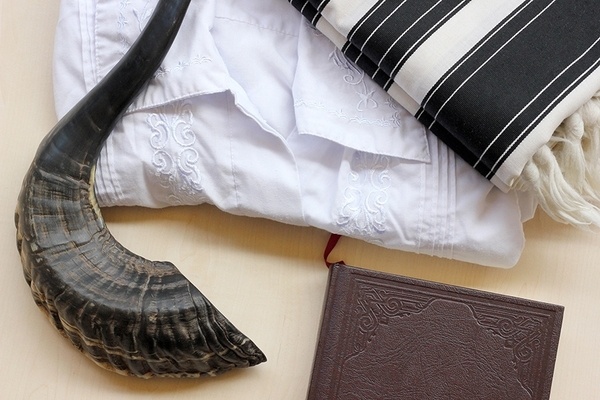Yom Kippur - Day of Atonement

Yom Kippur/Day of Atonement Eve ~ September 25, 2023/10 Tishrei 5784
There are two aspects of Yom HaKippurim for which everyone must strive on this sacred day: atonement and purity or cleansing [Vayikra (Leviticus) 16:30]. Atonement and purity are two processes. Our first goal on Yom HaKippurim is to earn HaShem’s merciful decision not to punish us for past misdeeds. That is atonement. It requires sincere teshuva (repentance). Purity is the pursuit of purpose for which HaShem created us. Man is called upon to endow his entire life with the attitude that every deed, morsel, and thought must be directed toward achieving that purpose. To be a wellspring of this purity is the function of Yom HaKippurim. It requires a renewed quest for purity and it provides the spiritual conditions that make it possible.
Leviticus 23:27, "Also on the tenth day of this seventh month there shall be a Day of Atonement: it shall be an holy convocation unto you; and ye shall afflict your souls, and offer an offering made by fire unto the Lord."
The feast of the tenth day of the seventh month, called Tishri, is commonly called Yom Kippur or the Day of Atonement. The Torah calls this festival “Yom HaKippurim” or “Yom Kippurim” which means “Day of The Atonements” or “Day of Atonements”.
Yom Kippurim, the Day of Atonements, is the anniversary of the day Moses brought down from Mounr Sinai the second set of Ten Commandments. This signified that HaShem forgave the Jewish people for the transgression of the Golden Calf. For all times this day was decreed to be a day of forgiveness for our mistakes. However, this refers to transgressions against HaShem. Transgressions against our fellow man require us to correct our mistakes and seek forgiveness. So, more than anything else, this is a day for confession and repentance. The whole liturgy of this day centers on these two aspects.
This feast is initially described in:
Vayikra (Leviticus) 23: 26-32 HaShem said to Moses, "The tenth day of this seventh month is the Day of Atonement. Hold a sacred assembly and deny yourselves, and present an offering made to HaShem by fire. Do no work on that day, because it is the Day of Atonement, when atonement is made for you before HaShem your G-d. Anyone who does not deny himself on that day must be cut off from his people. I will destroy from among his people anyone who does any work on that day. You shall do no work at all. This is to be a lasting ordinance for the generations to come, wherever you live. It is a Sabbath of rest for you, and you must deny yourselves. From the evening of the ninth day of the month until the following evening you are to observe your Sabbath."
The word "Atonement" is defined by Strong's as:
3725 kippur, kip-poor'; from 3722; expiation (only in plural):-atonement.
rpf, kippur, never occurs, in the Torah, in the singular. rpf, kippur, ONLY occurs in the plural as ohrpf, kippurim.
In Vayikra (Leviticus) 23:27, this feast is called ohrpfv ouh, Yom HaKippurim.
In Vayikra (Leviticus) 23:28, this feast is called ohrpf ouh, Yom Kippurim.
In Vayikra (Leviticus) 25:9, this feast is called ohrpfv ouh, Yom HaKippurim.
These three places are the only places where this feast is mentioned in the Torah.
The “atonements” that take place on Yom Kippur, in the Temple, will only be for sins committed in ignorance:
Bereans (Hebrews) 9:7 But only the high priests entered the inner room, and that only once a year, and never without blood, which he offered for himself and for the sins the people had committed in ignorance.
The goat for Azazel, however, is said to be an atonement for intentional sins.
Kippurim means to appease, make atonement, cleanse, disannul, forgive, be merciful, pacify, pardon, purge away, put off, and make reconciliation.
Yom HaKippurim is the actual scriptural name for this festival, which means the Day of the Atonements. The meaning has two connotations to it: one, that a person repents to HaShem for his sins that he has committed and asks HaShem for his forgiveness and the other is to ask for repentance from your fellow man for the sins that you have committed against him.